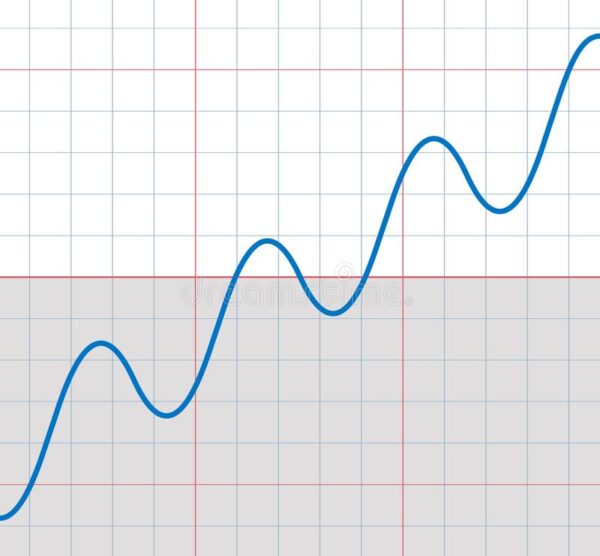The Source of True Humility

R' Yochanan said (Megillah 31a): כׇּל מָקוֹם שֶׁאַתָּה מוֹצֵא גְּבוּרָתוֹ שֶׁל הַקָּדוֹשׁ בָּרוּךְ הוּא אַתָּה מוֹצֵא עִנְוְותָנוּתוֹ (Every place where you find [mention of] the greatness of the Holy One, blessed be He, you find [mention of] His humility). That may sound rather surprising. After all, we tend to think of the Master of creation as majestic, powerful and all knowing. Those are all true, but they are true specifically because He is humble. So what exactly is humility? If you look at the examples given by R' Yochanan, you will see that each verse describes how Hashem goes out of His way, so to speak, to do kind things to people in need, e.g. providing justice for the widow, giving fatherly advice to the orphan, or dwelling with the person who is of a crushed and lowly spirit.
What lies at the root of humility? What motivates a person to conduct himself with humility? When a person can view others as being better or greater than he, then he can easily behave humbly in their presence and serve their needs. This enabling attribute is known as shiflut [שיפלות, lowliness], the antithesis of arrogance. Therefore, since Hashem is humble, He must also be lowly. But we may ask: ‘I can understand how it is possible to view a truly great individual as better than me, or maybe even a peer as better than me (at least, in certain areas), but to view people who are beneath me as better than me? Is that realistic? And if it’s not realistic for each one of us, how can we say that Hashem is lowly?’
David ha-Melech provides our answer (Tehillim 22:6): וְאָנֹכִי תוֹלַעַת וְלֹא־אִישׁ חֶרְפַּת אָדָם וּבְזוּי עָם (I am a worm and not a man; a disgraced man and despised of the nation). Although we may think of David ha-Melech as an extraordinarily great man, he didn’t feel that way about himself. What explains this? He had perfected the attribute of shiflut. And from whom did he learn it? He learned it from Hashem. He put into practice the admonishment given to the Jewish People through Moshe Rabbeinu to imitate Hashem in His attributes (Devarim 28:9): יְקִימְךָ יְיָ לוֹ לְעַם קָדוֹשׁ כַּאֲשֶׁר נִשְׁבַּע־לָךְ כִּי תִשְׁמֹר אֶת־מִצְוֺת יְיָ אֱלֹקֶיךָ וְהָלַכְתָּ בִּדְרָכָיו (Hashem will establish you to Himself for a holy nation just as He swore to you if you will keep the mitzvot of Hashem your G‑d and walk in His ways).
Although David may have perfected the attribute of shiflut and saw everyone as greater than he, does it even make sense to say that Hashem ‘feels’ that way about us? By way of analogy, Hashem graciously gave my wife and me a grandson almost a year and a half ago, and we have been privileged to watch over him almost daily. As is known, going through parenthood is a bit of a traumatic experience (to say the least), and fortunate are we if we didn’t end up with PTSD and can actually remember something of those first few years. But grandparenthood is different. We have the luxury of being more relaxed, perhaps even a little wiser, and hopefully a little more patient. As a result, we tend to notice things that we just didn’t focus on when we were new parents. For example, our grandson trusts, he believes, and he’s not jaded or hypocritical. He smiles practically all the time (except when he bumps his head or stubs his toe) and finds joy in the simplest things. If that weren’t enough, the moment he walks into our home, he runs to find my hat. G‑d forbid I would sit and learn Torah without my hat on! Most recently, he showed interest in the mezuzahs affixed to our doorframes. Now we can’t walk through a doorway in our house without him reminding us to touch the mezuzah and give it a little kiss. So am I in awe of my grandson? Yes, compared to his outlook I’m such a rasha. But I don’t beat myself up about it. I’m so happy. What an amazing experience, to be given the privilege of spending so much time by a tzaddik!
Don’t think that I’m exaggerating. I’m not. The point is that this is the way Hashem thinks about us. Even when we do a ‘little’ mitzvah, Hashem is so impressed. Do you think He’s impressed by how the angels sing to Him all day and praise His name endlessly? No. He programmed them, so to speak, to do that. They don’t have much free will, for they dwell in the light. But we dwell in the darkness of this world, and if that’s not dark enough, we dwell in perhaps the darkest period of time in the history of mankind. Yet, when we perform even the slightest little mitzvah, Hashem, so to speak, dances and sings with delight over each one of us, as it is written (Yeshayah 42:1): הֵן עַבְדִּי אֶתְמׇךְ־בּוֹ בְּחִירִי רָצְתָה נַפְשִׁי (Behold My servant, in whom I uphold, My chosen, in whom My soul delights).






